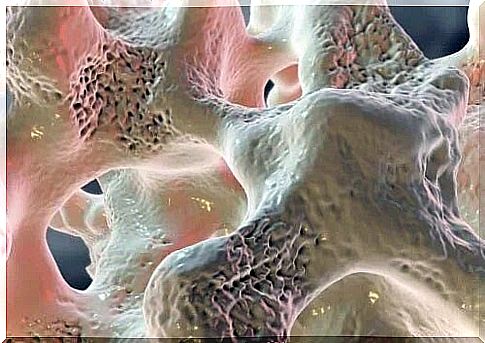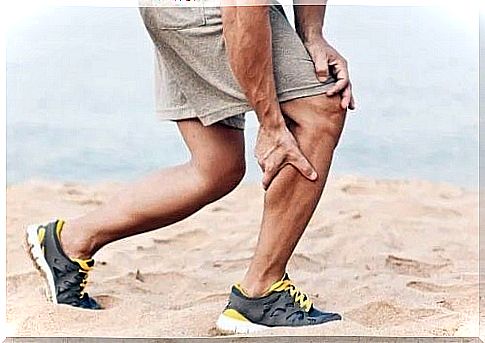Consequences Of Calcium Deficiency In The Body

Lack of calcium is a nutritional deficiency that has a negative impact on human health. Calcium is one of the most abundant minerals in the human body. It is important to eat certain foods rich in this nutrient regularly to avoid the consequences of lack of calcium in the body.
Fortunately, many of the products you eat daily contain calcium. Maintaining a varied diet provides a sufficient amount of calcium, although vitamin D is also important to ensure its absorption.
Although found in many foods, some people suffer from a lack of calcium. So, we will tell you what are the consequences of lack of calcium in the body and why it is important to carefully monitor your intake. This is especially important during menopause.
The consequences of lack of calcium in the body
Osteoporosis
Osteoporosis is a common disease in postmenopausal women. This causes a progressive demineralization of the bones, which increases the risk of fractures, which conditions the lifestyle of affected people.
Once the disease has started to develop, it is difficult to reverse it, so prevention is essential. Available drugs and treatments try to stop the damage that has already occurred, but bone replacement is almost impossible. Lack of calcium in adulthood increases the chances of osteoporosis. This is confirmed by research published in the journal Maturitas, in which a correct intake of minerals is correlated with a reduction in the impact of the disease.
In any case, it is essential to control your nutrient intake so as not to exceed it. An exaggerated increase in calcium intake leads to the formation of kidney stones. Therefore, the daily dose should not exceed 2000 milligrams.
In addition to calcium intake, frequent sun exposure or the use of vitamin D supplements under medical supervision is recommended. This micronutrient participates in the absorption of minerals and bone metabolism. The administration of both substances helps reduce the risk of fractures in adulthood, according to a study published in Osteoporosis International.

The consequences of calcium deficiency in athletes
In addition to ensuring electrolyte balance, maintaining adequate levels of calcium in the body can reduce the risk of muscle cramps. It has even been speculated that supplementing this mineral may help reduce leg cramps in pregnant women.
However, research published in the Journal of Research in Medicinal Sciences did not find a clear association. Suspicion is derived from the role of calcium in cellular metabolism, both in neurons and in myocytes (muscle cells).
Calcium intervenes in the transmission of nerve impulses. Excessive loss of this mineral in athletes through sweating can affect muscle contractility and performance. Therefore, maintaining electrolyte balance by consuming mineral-rich drinks is very important during training, especially in high temperature situations.
Spasms
If the symptom reappears and in certain circumstances you should seek the advice of a specialist. In pregnant women, for example, or in hypertensive people, spasms hide a major problem related to blood circulation. It’s not an emergency, but blood tests can solve the mystery.

Prevention of hypercalcemia
It is important to remember the importance of maintaining an adequate level of vitamin D to improve the absorption of minerals. Optimizing the production of this substance involves frequent sun exposure. It is also important to enrich your diet with ocean fish, eggs and fortified dairy products.
If vitamin D deficiency is suspected, you should consult a specialist to assess the need for supplementation. This situation can lead to an increased risk of chronic diseases in the medium and long term.









